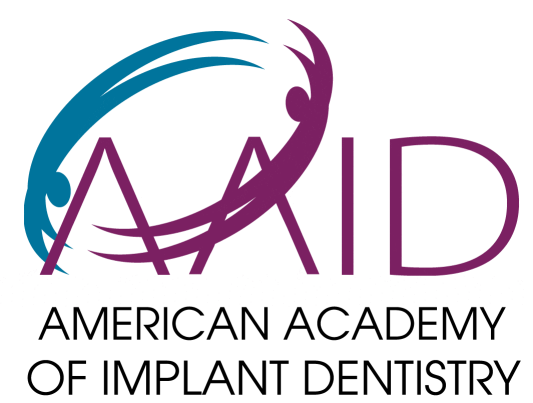Hormonal changes significantly impact oral health in women by increasing the risk of gum disease, tooth decay, and oral inflammation due to fluctuating estrogen and progesterone levels throughout menstruation, pregnancy, and menopause. At Lansdowne Family Dental, we help women understand that these natural hormonal transitions require specialized dental care and attention to prevent serious oral health complications.
Women experience unique oral health challenges during different life stages as hormonal fluctuations affect blood flow to the gums, immune response, and saliva production. Key periods when hormonal changes most significantly impact oral health include:
- Menstrual cycles – Monthly hormone fluctuations can cause gum sensitivity, swelling, and bleeding
- Pregnancy – Increased progesterone leads to pregnancy gingivitis and higher cavity risk
- Menopause – Declining estrogen causes dry mouth, bone loss, and increased periodontal disease risk
- Hormonal birth control – Can contribute to gum inflammation and oral health complications
Understanding these hormonal connections is crucial for maintaining optimal oral health throughout a woman’s life. While hormonal changes are natural and unavoidable, their impact on your teeth and gums can be effectively managed through proper oral hygiene, regular professional care, balanced nutrition, and stress management strategies.
This comprehensive guide will explore how hormones affect women’s oral health at every life stage and provide practical strategies for protecting your smile during these important transitions.
The Five Crucial Stages
- Puberty: The onset of puberty brings about a surge in estrogen and progesterone levels, which can increase the risk of gum inflammation.
- Menstruation: Some women may experience swollen salivary glands, mouth ulcers, or bleeding gums due to hormonal changes during their menstrual cycle.
- Oral Contraceptives: The use of birth control pills can also influence oral health due to the hormones they contain.
- Pregnancy: Hormonal changes during pregnancy can exacerbate oral health issues. It’s essential for pregnant women to maintain good oral hygiene and have regular dental check-ups.
- Menopause: This stage can bring about various oral health challenges, including dry mouth, altered taste, and increased sensitivity.

The Role of Estrogen and Progesterone
The rise in estrogen and progesterone during these life stages increases the risk of gum inflammation. These hormones can promote the growth of bacteria, leading to plaque buildup. The body’s inflammatory response to this plaque can cause the gums to become red, swollen, and prone to bleeding.
Prevention and Care
While hormonal changes are natural and unavoidable, their impact on oral health can be managed. Regular dental visits, maintaining low plaque levels through good oral hygiene practices, and avoiding risk factors like tobacco use can help minimize potential oral health issues.
For residents of Ashburn, Sterling, Leesburg, and Lansdowne, VA, choose Lansdowne Family Dental for quality dental care. We offer various dental services with a patient-centric approach. Start your dental journey with us. Contact us!
Oral Health During Pregnancy
Pregnancy is a crucial time for oral health. The American College of Obstetrics and Gynecology recommends pregnant women to have a comprehensive dental exam. Maintaining good oral health during pregnancy can prevent complications like low birth weight or preterm birth. Moreover, mothers who uphold good oral hygiene habits are more likely to pass these practices on to their children, promoting better oral health outcomes for the next generation.
Takeaways
Hormonal changes are an integral part of a woman’s life, and understanding their impact on oral health is crucial. By staying informed and proactive, women can navigate these changes and ensure their oral health remains in top condition.
FAQs
- How do hormonal changes during menstruation affect oral health? During menstruation, some women may experience oral symptoms like swollen salivary glands, mouth ulcers, or bleeding gums due to hormonal fluctuations.
- Are oral contraceptives a risk factor for oral health issues? Oral contraceptives can influence oral health due to the hormones they contain, potentially affecting the gums and overall oral hygiene.
- Is it safe to undergo dental treatments during pregnancy? Yes, dental care is both safe and effective during pregnancy. It’s essential to communicate with your dentist to determine the best course of action.
- How does menopause impact oral health? Menopause can bring about various oral health challenges, including dry mouth, altered taste, and increased sensitivity.
- What preventive measures can women take to protect their oral health? Regular dental check-ups, good oral hygiene practices, a balanced diet, and avoiding tobacco use are crucial preventive measures.
- How does pregnancy impact oral health? Hormonal changes during pregnancy can exacerbate oral health issues. Maintaining good oral hygiene and having regular dental check-ups during pregnancy is essential.
Next Steps
Empower yourself with knowledge and take charge of your oral health. Schedule regular dental check-ups, especially during significant life changes, to ensure your oral health remains at its best. Remember, your oral health is a reflection of your overall well-being. Stay informed, stay proactive, and prioritize your dental care.






